Commercial trucks have become common on our roads, especially as the need for online delivery services has increased worldwide. While the trucking industry is a vital part of our economy, many trucks on the roads can pose dangers to other drivers.
Unfortunately, we all got used to the news reports of trucks colliding with other vehicles. Reading the news is one thing, but being involved in one of such collisions is a whole different story.
If you or someone you love has experienced a truck accident, you might need an attorney’s assistance. Never wait to speak with a truck accident lawyer to explore your options for compensation, regardless of the type of collision you were involved in.
Types of Trucks Involved in Accidents
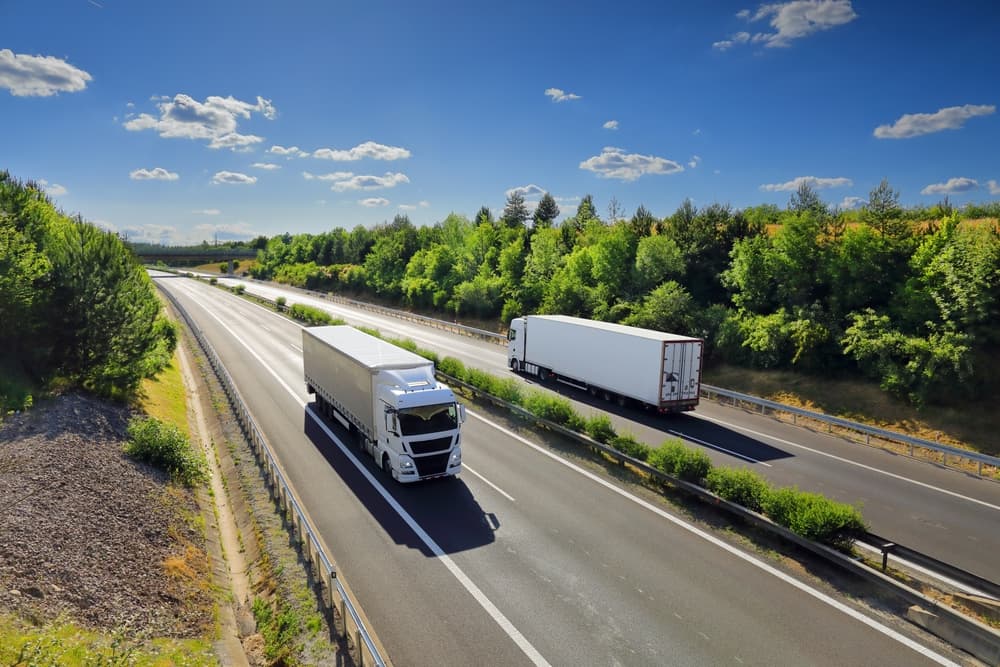
In the United States, trucks move more than 72 percent of the freight by weight. As a car driver, you may see different types of trucks, and nearly all can cause an accident.
Here’s a brief overview of the types of trucks that are commonly involved in collisions with other vehicles:
- Semi-trailer trucks, also known as big rigs or 18-wheelers, are perhaps the most iconic and recognizable type of truck. They consist of a tractor unit and a detachable trailer. Why are they in accidents? Semi-trailers are often involved in accidents due to their massive size, making them difficult to maneuver and stop quickly. Factors such as driver fatigue, improper loading, and mechanical failures also contribute to such accidents.
- Flatbed trucks feature a flat, open bed (hence the name), facilitating easy loading and unloading of goods. These trucks commonly transport large, heavy, or awkwardly shaped items. Why are they in accidents? Flatbed trucks are prone to accidents due to improperly secured loads, which can shift during transit and cause the truck to become unbalanced. Moreover, the open nature of the flatbed means that debris or cargo can fall off, posing hazards to other road users.
- Box trucks, also known as straight trucks, feature a rigid cargo area attached directly to the truck cab. Local deliveries and moving services commonly utilize them. Why are they in accidents? Box trucks are frequently involved due to their high center of gravity, making them susceptible to rollovers. Additionally, drivers may lack proper training or experience, leading to collisions, particularly in urban settings where maneuvering is more challenging.
- Tanker trucks transport liquids, gasses, or bulk materials. They frequently carry fuel, chemicals, or food products. Why are they in accidents? The hazardous nature of the materials transported by tanker trucks makes them particularly dangerous when involved in accidents. Spills can lead to fires, explosions, or environmental contamination. The liquid cargo can also slosh around, causing instability and increasing the likelihood of rollovers.
- Dump trucks are utilized primarily in the construction and mining industries to transport loose materials such as sand, gravel, or demolition waste. They feature an open-box bed with hydraulic pistons that lift the bed to unload its contents. Why are they in accidents? The heavy loads carried by dump trucks can make them difficult to control, especially when the load shifts unexpectedly. Additionally, dump trucks frequently operate in areas with high pedestrian traffic and other vehicles, increasing the risk of collisions.
- Garbage trucks are specialized vehicles designed for the collection and transportation of waste. They usually operate in residential areas and have mechanical arms or lift mechanisms to load the garbage. Why are they in accidents? Garbage trucks often navigate narrow streets and crowded neighborhoods, making them prone to accidents involving pedestrians, cyclists, and other vehicles. Frequent stops and starts also contribute to their involvement in collisions.
- Cement trucks or concrete mixers transport ready-mix concrete from production plants to construction sites. They have rotating drums that keep the concrete from hardening during transit. Why are they in accidents? Cement trucks are top-heavy and can become unstable, especially when making sharp turns or sudden stops. The weight of the concrete and the need to keep it constantly rotating add to the complexity of operating these trucks safely.
- Crane trucks are mobile vehicles equipped with cranes for lifting and moving heavy objects. They are commonly used in construction, shipping, and heavy manufacturing. Why are they in accidents? Crane trucks often cause accidents due to the challenges of maneuvering with extended booms and heavy loads. Operator error, mechanical failures, and improper setup can lead to severe incidents, including tip-overs and dropped loads.
Depending on what type of truck was involved in the accident, there may be different liable parties. That is why you must consult a truck accident attorney to determine liability and pursue compensation.
Common Types of Truck Accidents
Every year, about 120,000 large trucks are in accidents that result in injuries across the United States. These crashes may vary in terms of their severity and how they occur. Let’s discuss some of the most common types of truck accidents:
Jackknife Accidents
A jackknife accident occurs when the trailer swings out to the side and forms a 90-degree angle with the cab. This typically happens when the truck skids, and the trailer, which is not as quick to respond to braking as the cab, continues moving forward.
Common causes of jackknife accidents include:
- Sudden braking. Abrupt stops can cause the trailer to swing out.
- Slippery roads. Icy or wet conditions can reduce tire traction.
- Improperly loaded cargo. Uneven weight distribution can make trailers more prone to jackknifing.
Jackknife accidents can lead to multi-vehicle pile-ups and severe roadway blockages, often resulting in serious injuries or fatalities.
Rear-End Accidents
Rear-end accidents occur when a truck collides with the vehicle in front of it. Given the mass of trucks, these crashes can result in catastrophic damage, injuries, and death.
Common causes of rear-end truck accidents include:
- Distracted driving. The truck driver is not paying attention to the road.
- Speeding. Trucks need more time to come to a complete stop.
- Traffic congestion. Frequent stopping and starting can increase the risk.
The impact force in rear-end collisions can cause severe spinal injuries, whiplash, and, in extreme cases, fatalities.
Underride Collisions
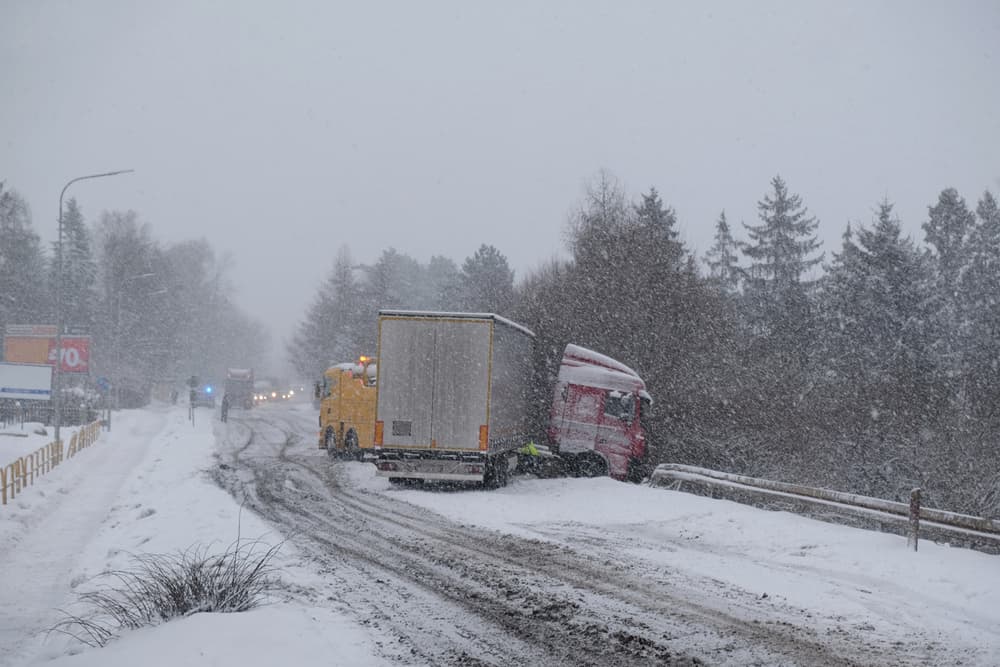
An underride collision happens when a vehicle goes underneath the rear or side of a truck. These are among the most deadly types of truck accidents.
Common causes of underride collisions include:
- Sudden stops. Abrupt braking can cause cars behind to slide under the truck.
- Inadequate lighting or reflectors. Poorly marked trucks are harder to see at night.
- High speeds. Vehicles going too fast can slide under the truck before they can stop.
Underride collisions often result in catastrophic injuries or death due to the intrusion of the truck’s structure into the passenger compartment of the smaller vehicle.
Blindspot Accidents
Blindspot accidents, or no-zone accidents, occur when a truck changes lanes or turns without seeing a vehicle in its blind spot.
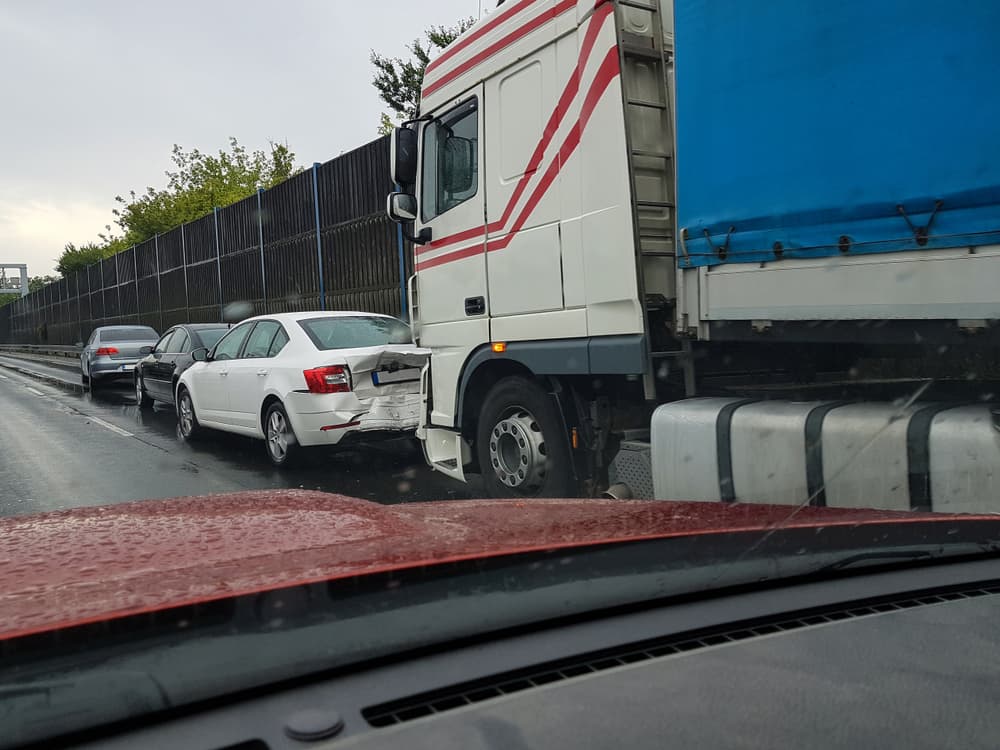
Common causes of blindspot accidents include:
- Large blind spots. Trucks have more extensive blind spots than other vehicles.
- Driver inattention. Failure to check mirrors or blind spots before maneuvering.
- Lane changes. Frequent or abrupt lane changes increase risk.
Due to trucks’ size and speed, these accidents can result in significantly more property damage and injury than accidents involving smaller vehicles.
Head-On Collisions
Head-on collisions involve a truck’s front colliding with another vehicle’s front. These are often fatal due to the high speeds involved.
Common causes of head-on collisions include:
- Wrong-way driving. Entering a one-way street or highway in the wrong direction.
- Overtaking errors. Misjudging the time or space needed to overtake another vehicle.
- Driver fatigue or impairment. Falling asleep or impaired driving can lead to crossing into oncoming traffic.
Head-on collisions typically result in life-threatening injuries due to the combined forces of both vehicles at speed. Statistics show that trucks struck head-on more than 30 percent of occupants of passenger vehicles killed in collisions with large trucks.
T-Bone Accidents
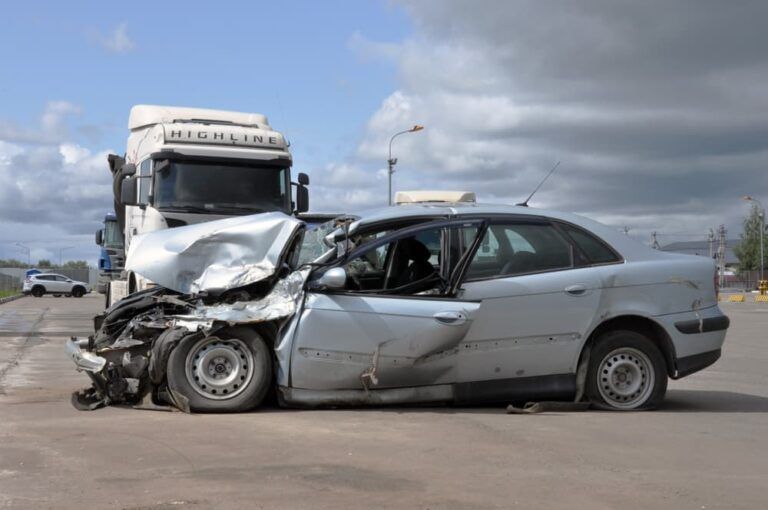
T-bone accidents, or side-impact collisions, occur when a truck crashes into the side of another vehicle.
Common causes of T-bone accidents include:
- Running red lights. Entering an intersection against the signal.
- Failing to yield. Not yielding the right of way at intersections.
- Distracted driving. Not noticing a vehicle crossing the intersection.
T-bone accidents can cause serious injuries to the occupants on the side of the impact, often leading to broken bones, head injuries, and fatalities.
Tire Blowouts
A tire blowout occurs when a truck tire bursts, causing the driver to lose control of the vehicle.
Common causes of tire blowout accidents include:
- Poor maintenance. Inadequate tire maintenance or inspection.
- Overloading. Exceeding the weight capacity of the truck tires.
- Road hazards. Hitting debris or potholes can cause blowouts.
Tire blowouts can lead to rollovers, jackknifing, or collisions with other vehicles, often resulting in injuries or fatalities.
How Is Liability Determined in Truck Accidents?
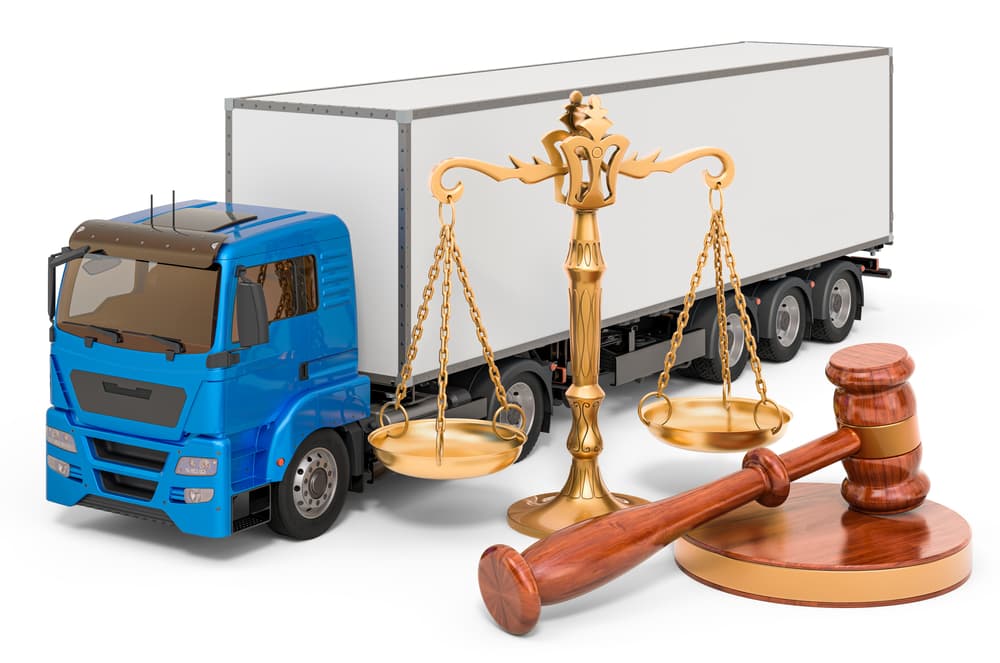
Determining liability in a truck accident usually requires a meticulous investigation.
Here’s how the process typically unfolds:
- Evidence collection. This includes police reports, photographs of the scene, witness statements, and any available video footage. Additionally, truck-specific data like the electronic logging device (ELD) records, which track the driver’s hours, and the truck’s black box, which records driving information, can record key evidence.
- Accident reconstruction. Authorities might enlist accident reconstructionists to analyze the scene and reconstruct the events leading to the crash. These professionals use scientific methods to understand the dynamics of the accident and help determine fault.
- Review of driver and company records. Your truck accident lawyer will review the driver’s records, including driving history, training, and any previous violations. They will also examine the trucking company’s records to ensure compliance with federal regulations, maintenance logs, and employment practices.
- Examination of vehicle and cargo. A thorough inspection of the truck involved in the accident can identify any mechanical failures or defects that may have contributed to the crash. Similarly, investigators will examine the cargo to determine if improper loading or securing contributed to the accident.
- Legal analysis. Your attorney will analyze the collected evidence and apply relevant laws to determine liability. This includes federal and state regulations governing trucking operations, product liability laws if a defect is involved, and general traffic laws. For example, the Federal Motor Carrier Safety Administration (FMCSA) regulates the maximum time truck drivers operate on the road with permits.
- Settlement or litigation. Once liability is determined, the process will move toward settlement or litigation. While many truck accident cases settle out of court, the parties may proceed to trial if settling for a fair agreement cannot be reached. Both sides will present their evidence and arguments during litigation, and a judge or jury will ultimately decide on liability and compensation.
Don’t hesitate to contact a lawyer if you need help determining liability after a truck collision. Truck accidents involve complex legal issues. An attorney can provide valuable guidance and support. From investigating the scene to negotiating with insurance companies, they protect your rights and recover fair compensation for your injuries.
Do You Need a Truck Accident Lawyer?
One of the primary benefits of hiring a truck accident attorney is their experience handling the unique aspects of cases involving commercial trucks and trucking companies.
A lawyer will know the intricate web of federal and state laws governing the trucking industry, what evidence to look for, and how to gather it effectively.
An experienced truck accident lawyer will conduct a thorough investigation, which may include reviewing the truck driver’s logbooks, examining the vehicle’s black box data, and interviewing witnesses. They will also work with accident reconstructionists to build a strong case on your behalf.
In addition to their investigative skills, truck accident lawyers are skilled in negotiating with insurance companies. Insurance companies often try to minimize payouts, with teams of adjusters and lawyers working to protect their interests.
Going up against them without legal representation can put you at a disadvantage. An Atlanta personal injury attorney will advocate for you and fight for the compensation you are entitled to.
All you need to do is call your initial free consultation today.
